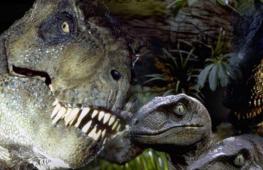Set expression stomp like an elephant. Elephant in a china shop - meaning
Expression "like an elephant in a china shop" firmly entered into use. What does this expression mean and in what cases can it be used so as not to get into a mess.
Linguists note that the roots of the words "elephant" and "lean against" are of a related origin. Apparently the elephant is named so out of love to sleep, leaning against something.
Values
Usually, the "elephant in the china shop" is used to metaphorically frame and describe the image of an extremely clumsy and awkward person who has everything falling out of his hands.
In addition, this is the name given to people who often speak irrelevantly, outside the topic of discussion, breaking the course of the discussion, demonstrating incompetence.
An interesting interpretation of idiom was found in the fable of our contemporary Aglaya Dateshidze "Dear respected elephant ...". Aglaya's work is devoted to the issues of self-realization and the search for a vocation. The sound of the phrase takes on a slightly different meaning, which boils down to the fact that there is no “big elephant”, there is a “small shop”. The work instantly became popular among bloggers and trainers of classes in personal growth. Here the idiom is used as a synonym for big ship great voyage” and in the meaning of retraining.
The origin of phraseology
Linguists have been arguing about the origin of this phrase for more than a decade.
There is an opinion that the expression appeared in our language by chance, through an incorrect and incomplete translation. The point is that in colloquial German there is a similar absurd expression that has a similar meaning.
There is a similar idiom in English language. It sounds like “Bull in a china shop”, which means “bull in a china shop”. For the first time this idiom, according to sources, is mentioned in the work of Mariat Jacob in 1834. The exact origin of the phrase is unknown.
In Russian works, phraseologism is first found in the poem "On Elephants and Porcelain" by Nikolai Agnivtsev in early XIX century.
Synonyms
- bearish
- clumsy
- unhurried
- calf
- seal
- bag
- goof
- penny
- awkward
- lob
Usage examples
- The enemy troops behaved like a bull in a china shop.
- Realtors and agents worked like an elephant in a china shop.
— I felt like the owner of a china shop waiting for the visit of an elephant.
- Peter at the meeting was like an elephant in a china shop.
“The process optimization expert who arrived at the site, assessing the dire state of the business and feeling the complete indifference of the authorities to changes, felt like a bull in a china shop.
Depending on the context, the expression takes on different meanings and allows you to enrich speech and make it interesting and figurative.
0
Many of us like to use various idioms and sayings. After all, they make the conversation more vivid and convex. However, not many people are able to understand their meaning, usually the meaning of the phrase becomes clear only from the context. For you to be able" don't hit your face in the dirt", and always be on top, we recommend you our new site site. Do not forget to bookmark it, because we will have a lot more useful information. Today we will reveal the meaning of another funny expression, this is the phrase Elephant in a china shop you will learn the meaning a little later.
However, before I continue, I would like to show you a couple more sensible news on the subject of proverbs and sayings. For example, what does it mean to wet Corky; meaning Like two fingers on the asphalt; which means bursting at the seams; what is Sprinkling ashes on your head, etc.
So let's continue Elephant in a china shop, meaning phraseologism?
Elephant in a china shop- this is the behavior of an absent-minded and clumsy person, in a place where accuracy is required
Elephant in a china shop- so they say about someone who inadvertently hurts the feelings of other people, breaks hearts
Synonym for elephant in a china shop: clumsy, penny, goof, bear, awkward, clumsy, non-cult.
Example:
Damn bro, why did you knock over the table, you're like an elephant in a china shop.
Look how the cat turned the whole apartment upside down, so small, but acting like an elephant in a china shop.
A tank on a federal highway, like an elephant in a china shop, rushing without looking around.
I "m like a bull in a china shop who likes to burn things in a barbeque."
If we try to find this figure of speech in dictionaries, then unfortunately, the explanation for this expression cannot be found there. I usually use Dictionary Ushakov(1935-1940), and what was my surprise when I did not find this popular proverb there. Then I turned my gaze to the master of literature V. And Dalia(1863-1866), "I'll find what I'm looking for" - I thought, but it wasn't there, and in the book "Proverbs of the Russian people" my search was unsuccessful.
Perhaps this phrase got into everyday speech thanks to the old fable " About elephants and porcelain", which was written by the poet Nikolai Yakovlevich Agnivtsev (1888-1932).
"... The moral of this fable is ahead,
She is sharper than pins:
If you are an elephant, then do not go
In china shops.
Recently, I have become interested in German comics, and suddenly I suddenly discovered that this phraseological unit is also found there. From this we can conclude that this phrase is international in nature.
By the way, in English, for the ironic designation of a clumsy citizen, the expression " bull in a china shop" ("
Tearing your hair-_________
From the letters of each pair or triple of words, make up dishes or the name of fruits:
Spruce + garden + cancer = _______
Rice+kepi=______
"Winged words" are figurative, well-aimed expressions, sayings that have come into common use. Restore the phrases from Krylov's fables, write the titles of the works from which these " winged words"taken.
And you, friends, no matter how you sit down ... _______
___________ yes the tooth is numb._______
When there is no agreement among the comrades, _______________________
_______________________
Isn't it better to turn to your godfather?
________________
So go dance!
At this beginning, add proverbs.
Builds with his right hand ... _____
Learn-Light...______________
Who wants to know a lot ... _____________
The root of learning is bitter ... _____________
Anagrams, or simply "shifters", are words or phrases of different meanings made up of the same letters. Try using all the letters of only these words to compose new words
Caprice-____
Prayer-____
Karateka-_______
From the letters of each pair of words, make up the name of the animal
Field+gift=_______
Shawl+to=______
Explain the meaning of the language expressions in each phrase:
I bit my tongue painfully _____
Language will bring to Kiev._______
The scouts took the language.______
Without tongue and German bell._____
Bite your tongue!______
Tongue with garlic sauce._____
From the letters of each triple of words, write the name of the mushroom:
Wonder+pony+juice=_______
Wagon + hip + peak = _________
Replace stable word combinations with one word.
Beat the thumbs-______
Through the sleeves-______
Nick down-_______
Insert prepositions instead of *
I am * in the morning * walking in the forest, * I am all wet with dew. But now I know * birch and * moss, * raspberries, blackberries, * hedgehogs and hedgehogs,
*which* is eaten
All needles are trembling.
Finish the catchphrase taken from the fairy tale.
It's all a saying, ___________.
man, he's on his mind.
Choose a stable expression and write down the letter:
A. Do not bastard.
B. Two pair of boots.
V. Boots of porridge are asked.
Please help!!! Don't sit..., think, decide!!!
on your feet. WORD LIST: cure, nap, get rich, run away, chat, fast.
Rewrite By inserting the missing letters, explain the meaning of phraseological units, prove that this is a phraseological unit.A sample of reasoning. A combination of words (nodding) is a phraseological unit because - it is stable (a word cannot be inserted into it without changing the meaning); - figurative expressive - close in meaning to one word (doze off) - is one member of the sentence (predicate).
1. An officer must always possess (the presence of the spirit).
2. You again (sat down in a puddle).
3. I firmly (kept myself in hand).
4. With a heavy appearance, he was (easy to rise) and mobile.
5.it WILL (REVEAL) EVERYONE (TO CLEAN WATER) (PICK OFF) FROM THE BOTTOM (MASK)
all that is highlighted in brackets is phraseologism, help me find out their meaning, please
Ekaterina Pleshka
The game« Phraseological zoo» .
The game provides an opportunity to enrich the vocabulary of children phraseological units containing the names of animals. The game promotes the development of thinking, accustoms to reasoning, develops the ability to analyze and reason, enriches the vocabulary of children.
Meaning explanations are provided to help. phraseological units.
Rules of the game
Option 1: teacher calls phraseological unit, but omits the name of the animal. Children must match the corresponding picture with the image of the animal.
Option 2: the teacher shows the picture of the animal, the children name one phraseological unit or several, explain it (their) meaning.
At the first acquaintance with the game, one should disassemble the direct and figurative meaning everyone phraseological unit.
Values phraseological units
Cunning as a fox - fox cunning is widely known, which helps her to get away from hunters.
Dirty as a pig - a dirty, untidy person, a slob.
Like a fish in water - free, at ease, good.
Cowardly as a hare - everyone knows about the cowardice of a hare, which is shaking with fear under every bush; expression characterizes the lack of courage in a person.
Stubborn as a donkey - Extremely uncompromising, not amenable to persuasion, insisting only on his own.
Working like a horse is very hard work.
Prickly like a hedgehog - angry at the tongue, mocking
Healthy as an ox - healthy and strong, although, obviously, not a very smart person.
Inflated like a turkey - it is said about a person who is exorbitantly proud, important, noticing others around him.
Quirky as it is - used for people who dodge, lie, try to somehow get out. It has to do with how you behave. (in theory) on a frying pan.
Cracks like a magpie - speaks quickly and loudly, not on business.
Hungry like a wolf - very hungry (a hint of the wolf, which is especially fierce during the famine).
Like an elephant in a china shop - used for someone who behaves awkwardly, touches something, drops it, breaks it, crushes it. An elephant in a china shop, due to its size and the size of an average china shop, behaves extremely awkwardly.
The bear stepped on the ear - there is no ear for music.
They live like a cat and a dog - they live, treat someone, etc. unfriendly, constantly quarreling, swearing
The mosquito will not undermine the nose - there is nothing to complain about.
Red like cancer - so they say about an embarrassed or simply blushing person. There was an expression from the fact that gray crayfish suddenly turn red when cooked.
Faithful as a dog - loyal, reliable.
Like water off a duck's back - it's completely indifferent, it doesn't work in any way, it doesn't affect anyone in any way; whatever.
Pulling the cat by the tail means delaying the matter, procrastinating, postponing something for a long time.
Writing like a chicken paw is sloppy, ugly, crooked.
Like a cow licked with her tongue - disappeared without a trace and it is difficult or almost impossible to find.
Like a sleepy fly - sluggishly, slowly, barely (do something).
Spinning like a squirrel in a wheel - being in constant trouble; fuss.



